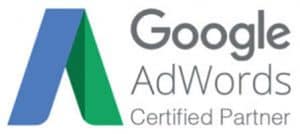The Key To Understanding How Your Small Business Shows Up and How others see your business online

We often speak with clients who believe that the results they see when they search their own business are the same results that their prospects see when they search for their goods and services. Unfortunately, that's not the case. How others see your business online is very different than how you see it, so it's important to understand that you may have more work to do with marketing your business online than you think.
What You See As The Business Owner Is Not What Your Prospects Are Seeing
 Firstly, it’s important to note that the vast majority of all internet traffic comes from two sources – Facebook and Google. Since people are more likely to go to Google when looking to make a purchase, we’ll focus on Google. But it’s important to realize that these concepts apply to all websites and customer experiences online including a Facebook business page.
Firstly, it’s important to note that the vast majority of all internet traffic comes from two sources – Facebook and Google. Since people are more likely to go to Google when looking to make a purchase, we’ll focus on Google. But it’s important to realize that these concepts apply to all websites and customer experiences online including a Facebook business page.
Google uses a lot of information to determine what results it’s going to show to someone searching for your products or services. Google knows your search history, interests and behavior, and it’s going to do its best to show you the most relevant results possible – based on you.
Keep in mind as well, that on your phone (or any device for that matter), your search query also includes information about your current location, and Google most likely knows your home location too – so it takes that into consideration when returning search results.
So, let’s say you own a plumbing business, and you’re currently at home, and you do a search for ‘plumber near me’ – the results you see will be served up based on your history, location etc. You may not even see your business if your IP address signals Google that you’re not in a typical service radius for your business. Or – the opposite may happen: you may see your business (even if you shouldn’t), because Google knows that you visit your website all the time, and have a search history that indicates you’re interested in the business.
The main point is that what you see when searching out your business is more than likely NOT how others see your business online.

The sooner a small business owner understands this concept, the sooner they can start to make positive changes to get their business ranking better on Google and other search engines.
Firstly, it’s important to note that the vast majority of all internet traffic comes from two sources – Facebook and Google. Since people are more likely to go to Google when looking to make a purchase, we’ll focus on Google. But it’s important to realize that these concepts apply to all websites and customer experiences online including a Facebook business page.
Google uses a lot of information to determine what results it’s going to show to someone searching for your products or services. Google knows your search history, interests and behavior, and it’s going to do its best to show you the most relevant results possible – based on you.
Keep in mind as well, that on your phone (or any device for that matter), your search query also includes information about your current location, and Google most likely knows your home location too – so it takes that into consideration when returning search results.
So, let’s say you own a plumbing business, and you’re currently at home, and you do a search for ‘plumber near me’ – the results you see will be served up based on your history, location etc. You may not even see your business if your IP address signals Google that you’re not in a typical service radius for your business. Or – the opposite may happen: you may see your business (even if you shouldn’t), because Google knows that you visit your website all the time, and have a search history that indicates you’re interested in the business.
The main point is that what you see when searching out your business is more than likely NOT how others see your business online.
There Are Three Major Sections To A Search Result Page:
The Further Down The Page, The Less Control You Have.

The top placements are “pay to play.” These top placements are typically Google Ads listings – and with Google Ads, you can tell Google to show your ads to people based on some very specific criteria: specific keywords, specific locations, specific times of day etc. – the options here are many, but the point is – you get to tell Google: “I want to show up under these very specific conditions, and I’m willing to pay for top of page placement because I know these are my best customers, and I need to get in front of them before my competition.”
The Google Business Listings are a bit more difficult, but there are definitely some things you can do to control who sees these by optimizing your listing for specific keywords; by getting more reviews; and by controlling your NAP (name, address, phone number) information across the web – so Google gives you preferred placement. Only three businesses typically get to show on page one – the rest are buried in the ‘More Listings’ section – so you want to be a top placement.
And below these, there are the organic listings. Here, you have even less control but with a smart, strategic SEO (Search Engine Optimization) campaign, you can give Google solid indicators of who you’d like to show for, where and when.

The top placements are “pay to play.” These top placements are typically Google Ads listings – and with Google Ads, you can tell Google to show your ads to people based on some very specific criteria: specific keywords, specific locations, specific times of day etc. – the options here are many, but the point is – you get to tell Google: “I want to show up under these very specific conditions, and I’m willing to pay for top of page placement because I know these are my best customers, and I need to get in front of them before my competition.”
The Google Business Listings are a bit more difficult, but there are definitely some things you can do to control who sees these by optimizing your listing for specific keywords; by getting more reviews; and by controlling your NAP (name, address, phone number) information across the web – so Google gives you preferred placement. Only three businesses typically get to show on page one – the rest are buried in the ‘More Listings’ section – so you want to be a top placement.
And below these, there are the organic listings. Here, you have even less control but with a smart, strategic SEO (Search Engine Optimization) campaign, you can give Google solid indicators of who you’d like to show for, where and when.
Let’s Recap
 So far, we’ve established that you have more control over how, where, and when your business appears in search results as you focus on paid ads, then the business listings, and then the organic listings. And we encourage most businesses to approach owning page one in that order.
So far, we’ve established that you have more control over how, where, and when your business appears in search results as you focus on paid ads, then the business listings, and then the organic listings. And we encourage most businesses to approach owning page one in that order.
Now, here’s an important thing to take away here:
Although Google tries to provide a completely tailored search experience for users based on their preferences and history, You can greatly influence those results when you leverage Google Ads, optimize your Google Business Page, and when you’re strategic with your SEO efforts, to effect how others see your business online.
But this has to be done intentionally – it doesn’t happen by accident.

So far, we’ve established that you have more control over how, where, and when your business appears in search results as you focus on paid ads, then the business listings, and then the organic listings. And we encourage most businesses to approach owning page one in that order.
Now, here’s an important thing to take away here:
Although Google tries to provide a completely tailored search experience for users based on their preferences and history, You can greatly influence those results when you leverage Google Ads, optimize your Google Business Page, and when you’re strategic with your SEO efforts, to effect how others see your business online.
But this has to be done intentionally – it doesn’t happen by accident.
A Few More Important Points

If you’re not investing in marketing your business through paid ads, you have little to no chance of ‘overriding’ the results Google will return, and you’re going to lose to your competition because they’ll show up before your business.
People trust Google more than they trust themselves in most cases. This means that they will likely call the first reputable business that Google shows them. The lower your business is on the page, the less likely you are to get the business. If you haven’t done the work to capture one of the top placements, you’re not going to win – plain and simple. If you’re doing SEO, you need a solid, well thought out strategy if you plan to win. Your strategy needs to have a clear picture of exactly who you want to show up for – where you want to show up for etc.
Remember, we’re all “lazy searchers” now, because we know Google knows where we are. A typical search is more likely to look like this on a mobile phone: ‘plumber’ and then they hit enter. Google then looks at where the searcher is (and other related info), to show them a plumber that’s most likely to service their location. So you need to do your part to let Google know what areas you service – where you’re located etc.
You Have To Invest To Win
There’s no way you can know with any level of certainty how your business shows up (or if it even does), for people who fit your target demographic. But, if you’re investing in more than one of these strategies, your chances of winning multiply. It has an exponential effect, because in each case, you’re providing more data to Google, to let them know who you should show up for; when and where you should show up; and you’re giving Google confidence that your business is a good fit for very specific types of people.

When Google Has Confidence In Your Business, You Rank Better
 Google’s number one priority is to ensure that their user, in this case the person completing the search, has a positive experience using their platform. This means they’ll only show businesses that they have confidence in to provide the necessary information.
Google’s number one priority is to ensure that their user, in this case the person completing the search, has a positive experience using their platform. This means they’ll only show businesses that they have confidence in to provide the necessary information.
So… the lesson here is simple: make sure you’re actively taking the necessary steps to help Google gain confidence in who should see your business; what products and/or services you should show up for; what areas you service; and any other triggers that show Google you’re a legit business with your customers best interests in mind (i.e. you have lots of positive reviews; you have a solid presence on other industry specific or social sites etc.). Do this and your chances of winning increase.
There are also some specific methods and tools we use to determine how and where you’re currently showing up online.
If you’re an established business and would like some additional visibility into your current online presence, book a time to chat with a member of our team today.

Google’s number one priority is to ensure that their user, in this case the person completing the search, has a positive experience using their platform. This means they’ll only show businesses that they have confidence in to provide the necessary information.
So… the lesson here is simple: make sure you’re actively taking the necessary steps to help Google gain confidence in who should see your business; what products and/or services you should show up for; what areas you service; and any other triggers that show Google you’re a legit business with your customers best interests in mind (i.e. you have lots of positive reviews; you have a solid presence on other industry specific or social sites etc.). Do this and your chances of winning increase..
There are also some specific methods and tools we use to determine how and where you’re currently showing up online.
If you’re an established business and would like some additional visibility into your current online presence, book a time to chat with a member of our team today.

Time To Meet With Kyle Battis
Kyle Battis has been involved in advertising and marketing since 1999. He has a background in Website Design, Direct Marketing, Online Media Buying commanding $150,000 per Month Ad budgets, Live Presentations, and he has extensive experience designing Marketing Campaigns that make money for small businesses.

 603-573-9289
603-573-9289




